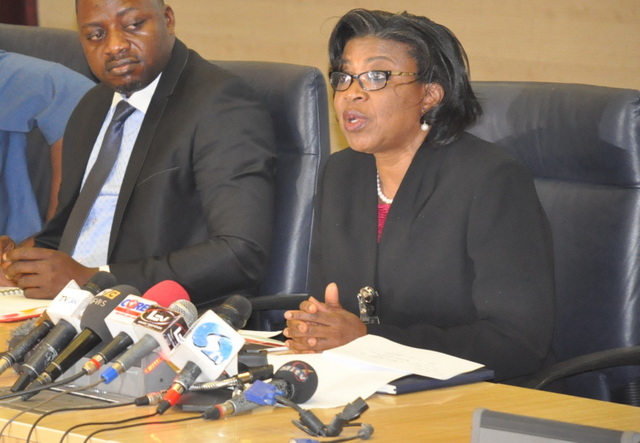The Debt Management Office on Monday raised the alarm that the outbreak of coronavirus was threatening the arrangement put in place to service the nation’s debts.
The DMO explained that Nigeria’s total public debt grew from $17.35bn in 2006 to $85.4bn, which is about N26.2tn, in September 30, 2019.
Patience Oniha, the director-general of the DMO, stated this at a public lecture, titled, ‘Public debt in Nigeria: Trend, Sustainable and Management,” organised by the National Institute for Legislative and Democratic Studies.
She put the total domestic debts at about N18tn (or $58.4bn), which is 68.45 per cent of the total public debts.
Oniha explained that the recent approval of the 2016-2018 external borrowing plan of $22.7bn would shoot the total debt stock of Nigeria to about N33tn with debt to GDP ratio being 21 per cent.
The DMO boss said the federal government had put in place necessary arrangements to service the nation’s debt with about N2.4tn from the N10.59tn passed by the National Assembly as the 2020 budget.
She, however, lamented that the revenue projection of the Federal Government might fail with the dwindling revenue target on the back of the coronavirus outbreak, which has affected oil prices.
She said the only way to effectively manage the debt profile of the country was with an improved revenue drive which the Finance Act, among other sources, was meant to achieve.
She said, “The total public debt has indeed been growing. The debt includes external and domestic debts of the Federal Government, state governments and the FCT; and the debt has accumulated over many years.
“Whilst Nigeria’s debt is sustainable, recent developments in the global environment induced by COVID 19 already suggest a less-than-favourable economic outlook with implications for Nigeria.
“Irrespective of COVID-19, the drive towards revenue generation should remain a priority for Nigeria, to finance development and strengthen development sustainability.”
Oniha also said, “Concerns have been expressed about the growth in Nigeria’s debt stock since the exit from the Paris and London Club of Creditors. It is true that the public debt stock has grown from $17,349.69m in 2006 to $85,390.82m as of September 30, 2019.
“However, it must be recognised that the current debt stock is the result of cumulative borrowing by successive governments to finance budget deficits and various infrastructure projects.”
Senator Bima Enagi, the vice chairman, senate committee on local and foreign loans, said the focus of the National Assembly was not on whether public expenditure was financed wholly or partially from borrowing or actual revenues earned by the country.
Rather, he said the focus would be on the transparency and the judicious deployment of all public funds, irrespective of their sources to ensure the maximum good for the citizens.



